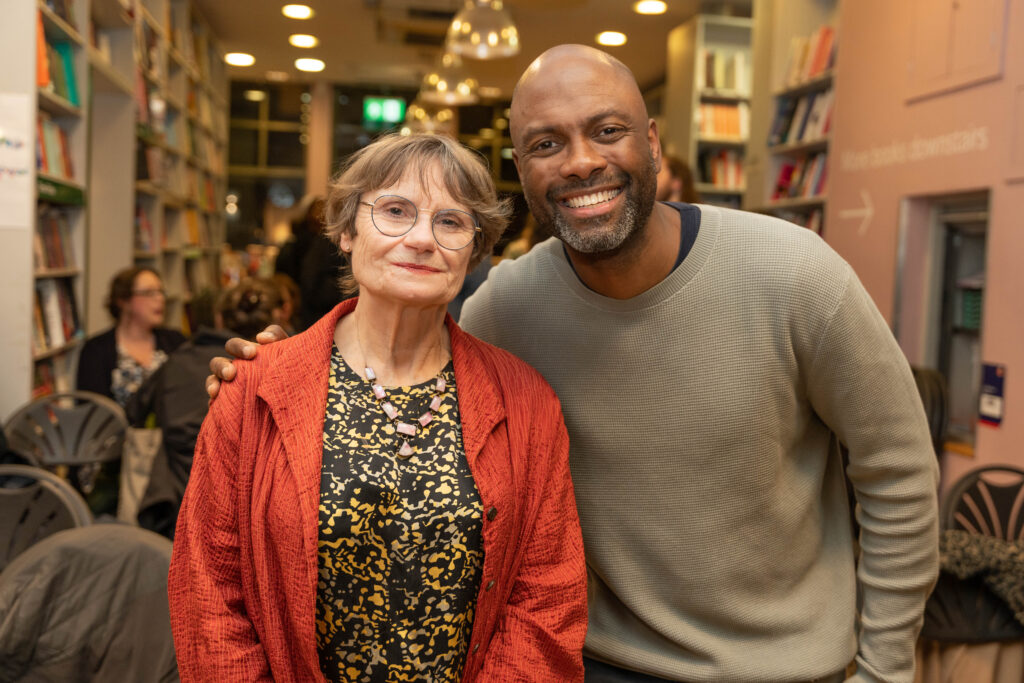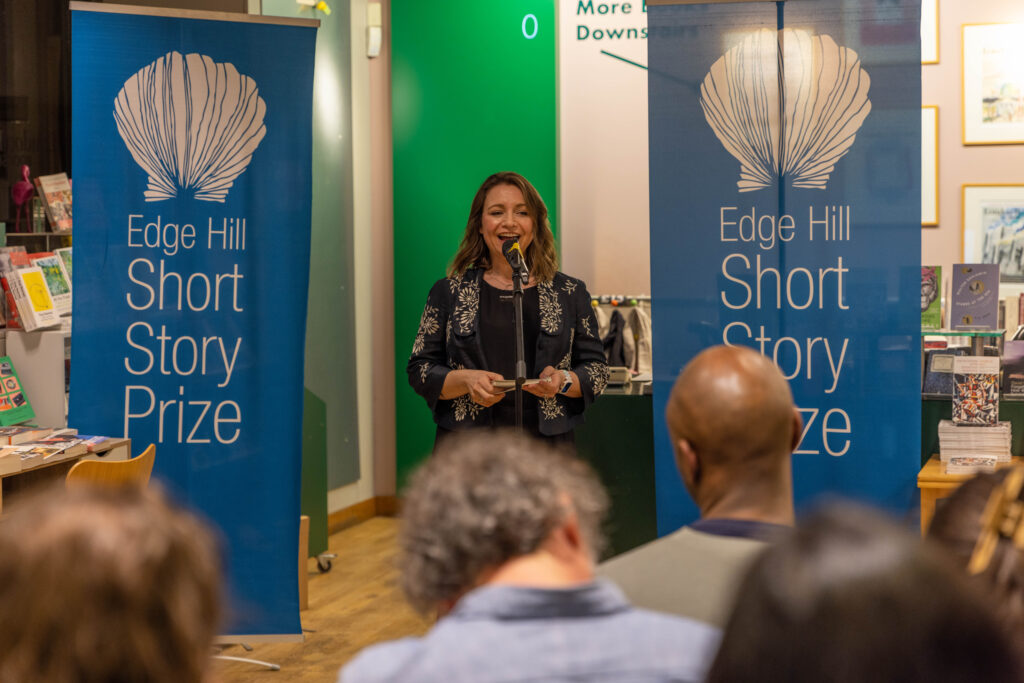Professor Ailsa Cox, Founder of The Edge Hill Prize, tells us what she looks for in a short story and a short story collection:

There’s no such thing as ‘the short story’. A short story can be exactly what you want it to be. That’s what’s so exciting about this form. It’s fiction at its most intense and concentrated, and it’s a space for playing around and trying something new. Some creative writing advice lays down sets of rules that might be useful as guidelines if you’re a complete beginner, but there are in fact no limits to what’s possible.
For me, the most important thing is language that sings on the page. I don’t mean lots of fancy metaphors and ‘poetic’ imagery. A style that’s simple and clear and speaks directly to the reader is often the most powerful. The stories in Malachi McIntosh’s Parables, Nightmares and Fables are like that. The real acid test is when you open a story or a collection at random. Any paragraph you choose should give you pleasure, without clumsy expressions or muddled sentences.
Voice and language are linked together. It’s hard to define what you mean by ‘voice’. Stories are sometimes told through different voices, or the voice of the author mingles with that of different characters, as in Tessa Hadley’s After the Funeral. But there’s a distinctive sensibility at work, and a feeling, as soon as you begin to read that yes, you’re in capable hands. You’re going to stay with this one.
A good story could also not be anything other than a short story. It isn’t just a slice of a novel.
There’s a lot of overlap these days between linked stories and novels, but like the stories in Daisy Johnson’s Fen they should stand alone. Jon McGregor experimented with all kinds of approaches in his collection This Isn’t The Sort of Thing That Happens to Some One Like You, including a story that is simultaneously a poem and a story including the maximum number of words beginning with ‘v’.
That book also includes dystopian fiction, which brings me to a point about genre. Science fiction, horror stories, fantasy – I love all of these. Jeremy Dyson’s The Cranes That Build The Cranes is as chilling as you might expect from his TV work. Lucy Wood’s Diving Belles uses the fantastic to subvert twee images of Cornwall.
What Lucy Wood is doing is making you think about what life’s really like for ordinary people living by the seaside. Other writers stories tell you what to think, and those are not for me. I’m put off by characters who are obviously good or bad (long-suffering wife, brutal husband). I like ambiguity. I like to kept on my toes by characters who behave in a contradictory or unexpected way. A story might be competently written, but when the themes and the plot and the characters are neatly tied together from beginning to end there’s nothing for my imagination to work with, and I’m soon tired of it.
Something we don’t talk about too often is humour. I don’t necessarily mean laugh-out-loud, though Kevin Barry’s stories definitely have that effect. What I mean is that a story without a trace of humour is lacking something. Lucy Caldwell is brilliant at adding that special slightness to stories such as ‘All the People Were Mean and Bad’.
The best stories have an emotional resonance that stays with you. Months or years later you think to yourself, ‘what was that story, where……..?’ One that often comes back to me is Sarah Hall’s ‘She Murdered Mortal He’, which is full of danger and risk in both the writing and the content.
Sarah Schofield, Convener of The Edge Hill Prize, tells us what she looks for in a short story and a short story collection:

In a collection I want variety. I want a cake shop window, not a box of biscuits all made with the same dough and cutter. I want a smorgasbord, not a beige budget buffet. I want one pair of hands that are unafraid of trying new things and taking risks. I’m not interested in perfection. What is perfect anyway? Imperfect is potent, exciting and deeply human.
I want imperfect variety. What is variety? It isn’t relying on tricks or quirks. It is a curated selection of stories that each feel like an invitation; where the writer and I are invested together to look closely at something (something that may otherwise be overlooked). I don’t want to look at the same thing over and over.
I don’t like stories that lecture me or tell me how I should think and feel about something… although the best stories may persuade me without me noticing – herein lies their tiny audaciousness.
I want writers to get out of the way of their stories. Give me dots and let me do the work. Let me in. Let me play.
I want stories that linger. I want stories that are anthemic and stories that whisper seductively. I want stories that land like bombs where I remember every scene and moment before and after the explosion. And I also want stories where in a year’s time I couldn’t tell you exactly what happened, but I remember, very distinctly, how the story made me feel. I want stories that pinpoint a precise emotion that I recognise as one I have experienced but have never been able to name or articulate.
I want characters I would like to be best friends with, and characters I would shove with my trolley in the checkout at Aldi.
I want to share intimately with people that don’t exist.
I want stories that see the contemporary through the lens of past or future, and stories that see the past or future through the lens of now.
I want stories that embarrass me and that make me cry or laugh in public. Stories that poke at tender parts of me that I didn’t know were there. Stories that change my opinion on something I was certain about… I want stories that change my opinion on what it is I’m looking for in a short story.
For examples of all the above, see the Edge Hill Prize winners and shortlists over the last 18 years.
